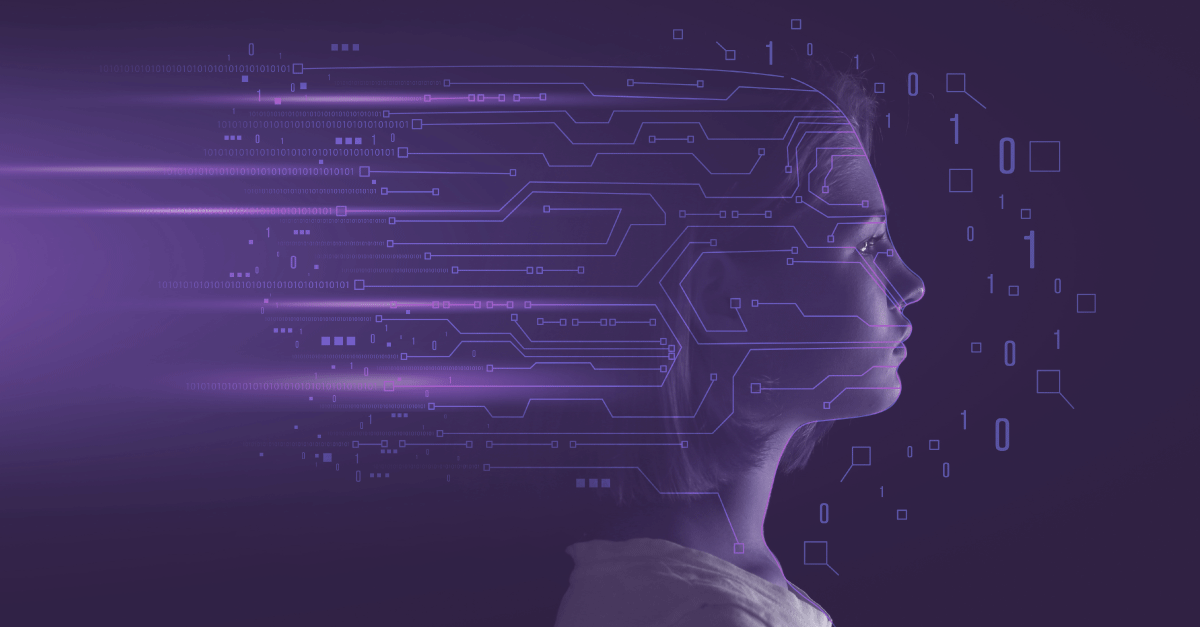Celebrating Women in AI: Meet the Most Influential Female Figures in the Industry
March 8th 2023

International Women’s Day is a celebration of women’s achievements and contributions to society. When it comes to the field of artificial intelligence, women have been making significant strides in recent years. From pioneering research to ground-breaking inventions, women in AI have been at the forefront of technological advancements, paving the way for future generations to come.
As the field of artificial intelligence continues to advance at an unprecedented pace, there has also been a notable shift towards greater female representation and leadership. Today, we’re seeing more and more women making their mark in AI, taking on important roles as researchers, engineers, entrepreneurs, and executives. In this article, we’ll introduce you to some of the most influential female figures in the industry, highlighting their contributions, achievements, and visions for the future. From pioneers who have been working in the field for decades to rising stars who are pushing the boundaries of what’s possible, these women are changing the face of AI and inspiring the next generation of innovators. So, without further ado, let’s meet the trailblazers who are leading the charge in the rise of women in AI.
The Current Landscape of Women in AI
The landscape of women in AI is rapidly changing, with more and more women entering the field every day. According to a recent report by the World Economic Forum, only 22% of AI professionals are female (Alan Turing Institute). However, many companies are actively working to increase diversity and inclusion. In fact, many tech giants such as Google, Microsoft, and IBM have made public commitments to increasing the representation of women and other underrepresented groups in AI.
Nonetheless, there are still significant barriers that women face in the industry. One of the biggest challenges is the lack of female role models and mentors in the field. This can make it difficult for women to envision themselves in AI careers and to find the support and guidance they need to succeed. Additionally, there are still biases and stereotypes that can hold women back, such as the belief that women are not as technically skilled or are better suited for non-technical roles. Despite these challenges, there are many influential figures that are making significant strides in AI, and their contributions are helping to reshape the industry.
The Pioneers of AI – Women Who Paved The Way
While the field of AI is still relatively young, there have been many women who have been working in the industry for decades. These women, along with many others, have paved the way for future generations of women in AI, and their contributions have been instrumental in shaping the industry as we know it today.
Ada Lovelace: Early AI Visionary and the Analytical Engine
Ada Lovelace is widely regarded as one of the earliest pioneers of computer science and AI. In the mid-1800s, Lovelace collaborated with Charles Babbage, the inventor of the first computer, on a project called the Analytical Engine. Lovelace’s contributions to the project went beyond simply writing code; she saw the potential of the Analytical Engine to do more than just perform calculations. Lovelace wrote about the possibility of the machine being able to create music and art and even predicted the concept of machine learning. Her vision of the Analytical Engine as a tool for creativity and innovation laid the foundation for what we now know as AI. Lovelace’s legacy in computer science and AI continues to inspire women in STEM and is a testament to the power of imagination and innovation in driving progress.
Fei-Fei Li: Revolutionizing Computer Vision with ImageNet
Fei-Fei Li is a renowned computer scientist and AI expert who has made significant contributions to the field of deep learning. She is a professor at Stanford University and the founder of AI4ALL, a non-profit organization that aims to increase diversity and inclusion in AI. In 2013, she led a team of researchers at Stanford University to develop ImageNet, a database of millions of labelled images that has been used to train machine learning algorithms. This breakthrough has led to significant advancements in computer vision, including the development of self-driving cars, facial recognition technology, and more.
Cynthia Breazeal: Creating Social Robots that Resemble Humans
Cynthia Breazeal is often referred to as the mother of social robotics. She is a professor at MIT and the founder of the Personal Robots Group. Her research focuses on creating robots that can interact with humans in a more natural and intuitive way, similar to how people interact with each other. She has developed several ground-breaking robots, including Kismet, which was designed to exhibit human-like emotions and expressions.
Kathryn Hume: Advancing Natural Language Processing for AI-Powered Language Tools
Kathryn Hume is another prominent woman in AI who has made significant contributions to the field of natural language processing (NLP). She is the VP of Product and Strategy at Borealis AI and has worked with several leading AI companies, including Google and IBM Watson. Her expertise in NLP has been instrumental in developing chatbots, virtual assistants, and other AI-powered language tools.
The Rising Stars of AI – Women Who Are Making Their Mark
While the pioneers of AI have made significant contributions to the field, there are also many rising stars who are pushing the boundaries of what’s possible.
Joy Buolamwini: Advocating for Algorithmic Justice and Equity in AI
Joy Buolamwini is a computer scientist and founder of the Algorithmic Justice League, which aims to promote equity in AI. She is known for her work on algorithmic bias and facial recognition technology, which she found to be less accurate when it comes to recognizing darker-skinned faces. Her work has been instrumental in raising awareness of these issues and pushing for greater accountability and transparency in AI. In fact, her advocacy has led to the implementation of new policies and regulations around AI ethics and accountability.
Timnit Gebru: Contributions to AI ethics and bias research
Another rising star is Timnit Gebru, a prominent researcher and advocate for diversity and inclusion in the field of artificial intelligence. In fact, Fortune named her one of the World’s 50 Greatest Leaders in 2021, and in 2022, she was recognized as one of Time Magazines’ most influential people. Gebru has made significant contributions to AI ethics and bias research, particularly in the areas of image recognition and natural language processing. She co-founded the Black in AI and Queer in AI communities and has been recognized for her work with numerous awards, including the ACM SIGAI Autonomous Agents Research Award. Gebru remains a vocal advocate for social justice and equity in AI and continues to inspire and mentor underrepresented groups in the field.
In addition to these trailblazing women, there are many others who are making significant contributions to the field of AI. For example, Emily Bender, a professor at the University of Washington, is working on developing more linguistically informed machine learning models. Karen Hao, a senior AI editor at MIT Technology Review, is a leading voice on the impact of AI on society. And Ida Sim, a professor of medicine and biomedical data science at Stanford, is working to develop AI-powered tools that can improve healthcare outcomes.
The Challenges Faced by Women in AI
While the future of women in AI is bright, there are still many challenges that need to be addressed. One of the most pressing challenges is to increase the pipeline of women entering the field, particularly in STEM education. Women and girls face numerous obstacles to pursuing careers in tech, including a lack of access to resources, stereotypes, and biases that discourage them from entering the field, and a lack of role models and mentors to guide and support them.
Another key challenge is to ensure that women are represented at all levels of the industry, from entry-level positions to executive leadership. This can be achieved through targeted efforts to recruit and retain women in AI, including efforts to increase diversity and inclusion in hiring and promotion processes. Additionally, companies can implement policies and practices that support work-life balance and flexible work arrangements, which can be especially important for women who may face additional caregiving responsibilities outside of work.
The Importance of Female Leadership in AI
The impact of women in AI extends far beyond the industry itself, with significant implications for society as a whole. One of the most important contributions that women are making in AI is to promote diversity and inclusion in the development and deployment of AI technologies. This is critical because AI has the potential to perpetuate and amplify existing biases and inequalities if it isn’t developed and used in a responsible and ethical manner.
Women are bringing new perspectives and approaches to AI, which can lead to more innovative and effective solutions. This is particularly important in fields such as healthcare, where AI has the potential to transform the way we diagnose and treat diseases. The presence of women in AI is also helping to break down stereotypes and misconceptions about what it means to work in tech. By showcasing the diverse range of skills and backgrounds that are needed to succeed in AI, women are helping to create a more inclusive and welcoming industry for everyone.
It’s key to continue implementing initiatives to increase the representation of women in STEM education programs, as well as mentorship and networking opportunities for women to connect with established professionals in the field. Encouraging companies to implement more equitable hiring and promotion practices can also help increase the number of women in AI.
In fact, studies have shown that companies with more diverse leadership teams are more innovative, perform better financially, and have better employee morale and satisfaction. Diverse teams are better equipped to identify and address biases and other issues that may arise in AI development and deployment.
Resources for Women in AI
Fortunately, there are many resources available for women who are interested in pursuing careers in AI. These include conferences and events that focus on diversity and inclusion in tech, such as the Grace Hopper Celebration of Women in Computing and the Women in AI Summit. There are also many online communities and mentorship programs that provide support and guidance to women in AI, such as Women in Machine Learning and Black in AI.
Additionally, many companies are actively working to increase diversity and inclusion in their AI teams and are creating programs and initiatives to support underrepresented groups. For example, Google has launched the Women Techmakers program, which provides resources and support to women in tech, and IBM has launched the AI Horizons Network, which supports diversity and inclusion in AI research.
Conclusion
In conclusion, the rise of women in AI is an exciting and important trend that is reshaping the industry and society as a whole. As we celebrate International Women’s Day, let us honor these female figures in AI and recognize the contributions of all women in STEM. We must continue to promote gender equity and diversity in the field of AI, ensuring that everyone has an equal opportunity to contribute to and benefit from technological advancements. With the continued support of organizations and individuals around the world, we can create a future where AI is truly for everyone.
To learn more about the impact of AI and how it’s shaping the future check out our recent blog about the history of AI.
Ready to see what we can do for you?
In the right hands, artificial intelligence can take human performance to a hitherto unimaginable level. Are you ready for evolution?




